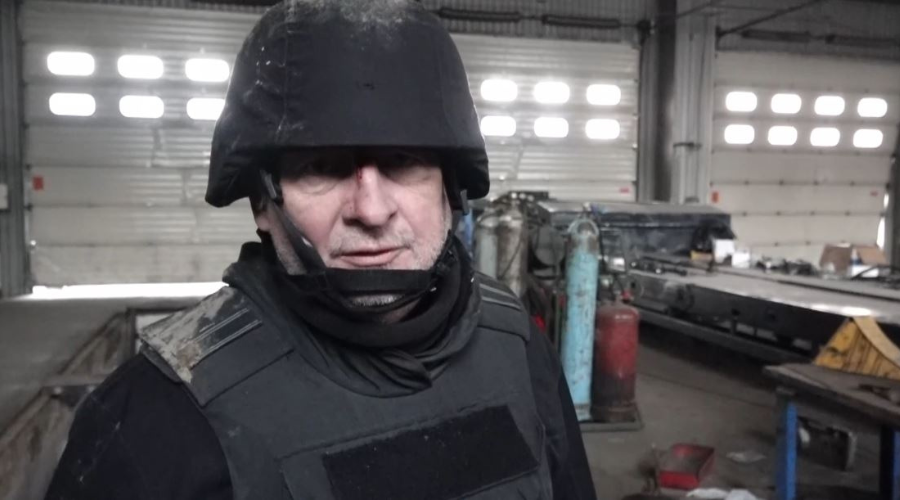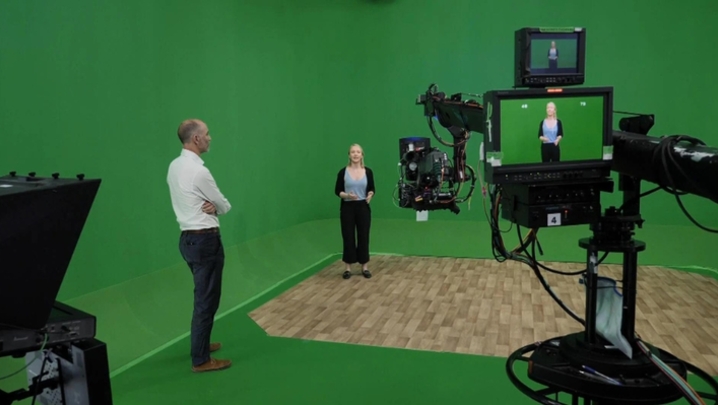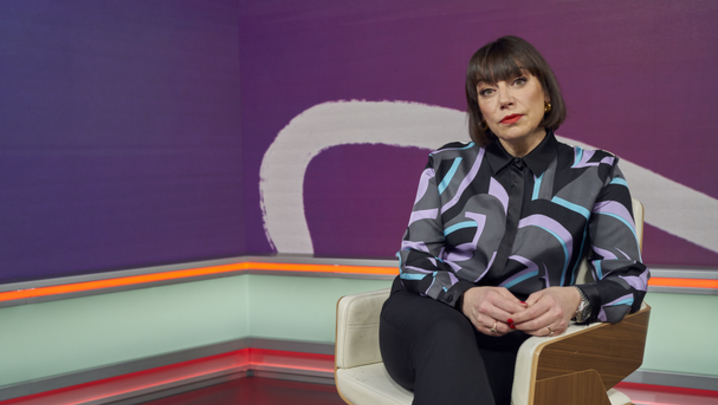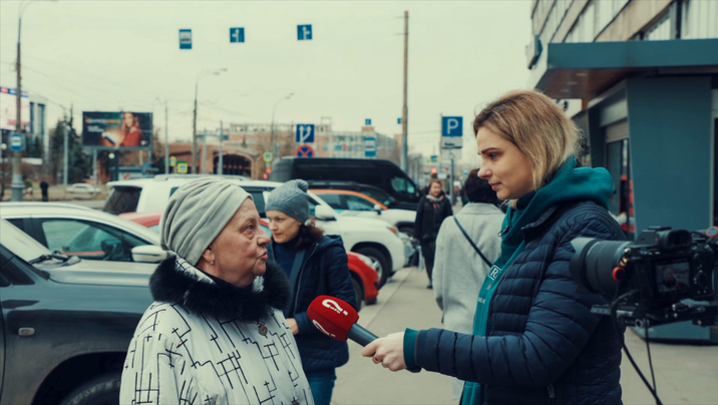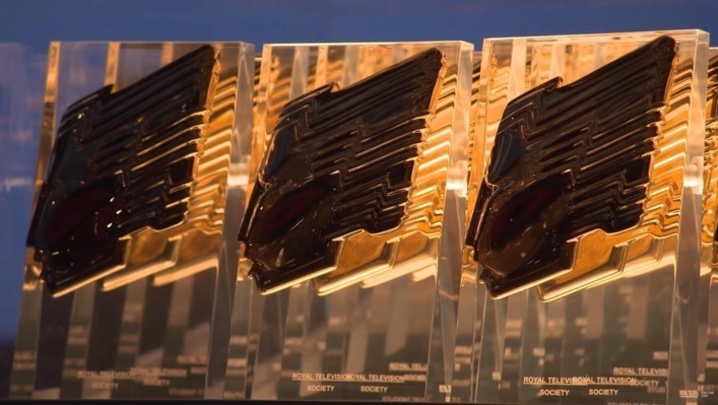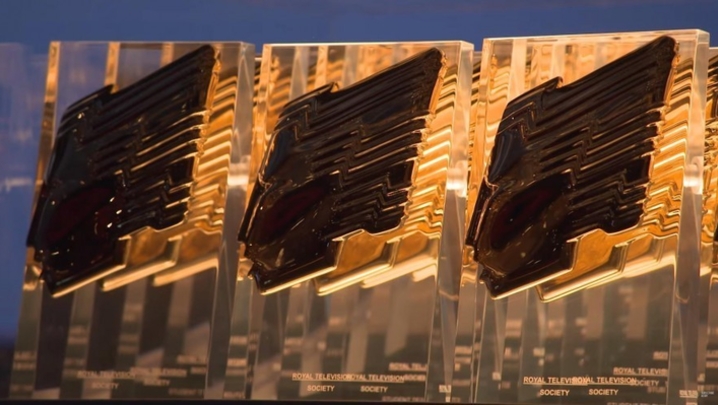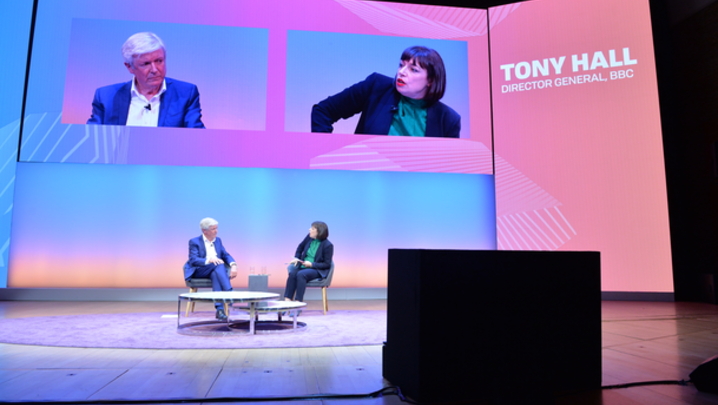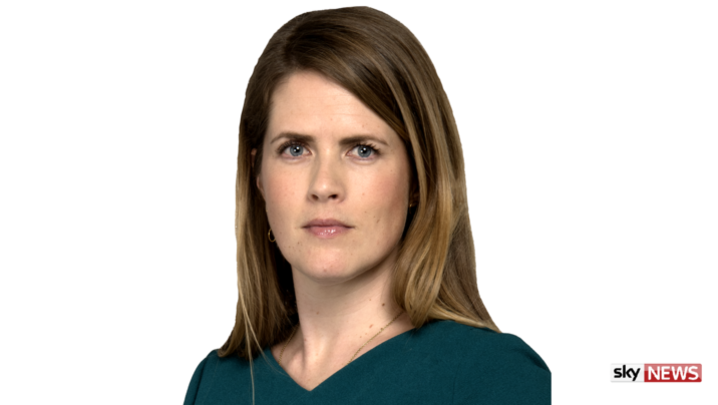On day five of the Russian invasion of Ukraine, Sky News' Chief Correspondent Stuart Ramsay and his team were driving back to Kiev from the frontline when an eerie quiet set in.
The Ukrainian government had been warning of Russian saboteurs infiltrating the country and attacking civilians in their cars as they fled. And so, apprehensive but with one eye still on the story, camera operator Richie Mockler started rolling.
Even now his footage makes for terrifying viewing. It begins with an ambiguous bang, before the team quickly realise they are being ambushed. Despite the hail of gunfire, they somehow all make it out alive, but not without Mockler and Ramsay both taking bullets.
Needless to say, the story made headlines around the world, for here was some of the earliest, undeniable video evidence of Russia's indiscriminate brutality.
But it was also a testament to the sheer courage of journalists like Ramsay who, simply to bear witness to such atrocities, were putting themselves in the firing line.
A year on, however, and Ramsay seems remarkably unfazed by it all. In fact, just three months after the ambush, post-surgery and recovery, he returned to the exact same location to continue investigating the story, and "what was weird," he says, "was that I felt nothing."
"Going to find the car was a bit emotional, not least because I found my glasses were still there!"
If this reads as glib or self-aggrandising in any way, I can assure you that Ramsay seems as genuinely surprised as I am by his stoicism. Perhaps it's just a by-product of experience—Ramsay has now been reporting from frontlines and danger zones for Sky News for over 30 years, and in that time, he recalls, "I've been shot at more times than I can remember, I've been blown up, I've been kidnapped, but I've only actually been shot and hit once. And that's not bad."
He also hastens to add that, a few days later, when they went back to visit the Ukrainian men and policemen who rescued them, "that was very emotional, actually, because that's the human side of it. But I've always been moved by people and I unabashedly admit to crying on stories all the time."
Far from compromising his journalism, he finds that it better informs his reporting. When people see you respond emotionally to what they are saying or feeling, he reckons, they are likely to open up more.
Although he admits that journalism wasn't exactly his first choice—Ramsay was a drummer in a rock band until they kicked him out for prioritising rugby, and only then did he start working for a local newspaper—it was meeting people that made him fall instantly in love with the job. And actually when he mentions how much he enjoys both the travel ("I don't think I've ever been to a country I didn't like") and the "chaotic environments" of foreign correspondence, it strikes me that perhaps the one is not that far removed from the other. "Being a rock 'n' roll star would probably still be my top thing," he says, "but it's been a pretty good alternative."

After completing an apprenticeship and grinding it out at local newspapers, hitting the front page for the first time with a story about a town planning application for a marina ("and you can't get more boring than that!"), he started freelancing for the nationals in the late 1980s before moving into TV.
He still remembers his first TV story. As a producer for TV-am (broadcaster of ITV's breakfast television until 1992), he was sent to cover Mikhail Gorbachev's return to Moscow after the Soviet President had been held hostage by Communist hardliners during their failed 1991 coup d'état.
He even recalls his wry opening line: "He looks absolutely exhausted. But you would be after being held at gunpoint for three days."
"Widely heralded as a genius piece of journalism," he jokes. "[The piece] was not particularly well done, nor particularly well voiced, but it was on TV-am as the lead which in those days had a huge viewership."
As for how exactly he landed his first foreign bureau, Moscow, at the relatively ripe age of 30, he credits his experience as an agency newspaper reporter.
He explains that in those days, your success or failure as a journalist in foreign news came down to: "did you make 'the feed'?" Each 'feed' was an individually booked satellite feed on which you would try to put both your news story and live shot if you could pack them in. Broadcasters would book blocks of 10 minutes at around £2000 a go, so if you missed your feed, Ramsay says, "your career as a foreign correspondent ended quite quickly."
In his case, however, sticking to the agencies' tight deadlines had taught him to write scripts "really, really fast," which stood him in good stead, he believes, because his employers probably thought: "he might not be the greatest reporter ever, he's still young, he's a bit rough around the edges. But he's keen, he's not scared, he doesn't complain about anything, he doesn't seem to get ill, but most importantly: he's not missing feed."
He has clearly ironed out those edges. Ramsay has just won Network Television Journalist of the Year at the RTS Television Journalism Awards 2023, giving one of the more memorable acceptance speeches of the night. As well as the usual thanks, he seized the moment to remind everyone that the Russians shot him in the back and not the arse.
But the picture he painted of himself as a stalwart still rings true. He is currently Sky News' longest serving correspondent, having spent just short of 31 years (and counting) deploying to events and disasters of all kinds. And many of them at a moment's notice, which he says is "all part of the fun of the job," albeit "not awfully good for families: 'No, sorry, I'm not going to be at that wedding...'"
But despite continually putting himself in harm's way—besides the Russian ambush, he was blown up in an Islamic State terror attack in Mosul, Afghanistan and also presented the first ever report from the inside of an ICU during the Covid-19 pandemic—he is quick to dismiss any notion of bravery. "I don't enjoy danger, and there are reporters who do an awful lot more dangerous things than me. But I suppose you just get used to the danger that comes with whatever job you're doing."
"Would I ever bungee jump? Never in a million years. But would I go to the frontline in Mosul? Well, yeah."

